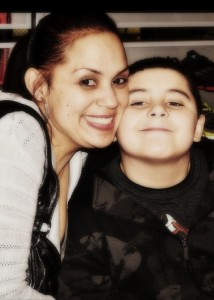 Our kids are unique, wonderful, whole persons.
Our kids are unique, wonderful, whole persons.
They can no more be defined by a disability label than they can be defined by any other characteristic – the color of their eyes, or their video game skills.
When comedian Zach Anner spoke about growing up with cerebral palsy in his televised interview with Oprah Winfrey - he jokingly said, “well, it’s not like my family could shield me from it!”
Do we try to “shield” our kids from the words that describe their struggle with reading, or their difficulty with behavioral self regulation, or their challenges interacting with others?
When and how do we talk to our kids about their disability when it is not physically apparent as it was for Zach growing up?
Providing our child with context
Kids need to know that every person is a unique combination of characteristics – and that we all have areas of strength and challenge.
Young adults with hidden disabilities often report that they compared themselves to peers long before they were told about their disability. Because they did not have a context within which to understand their challenges – they often had an overall feeling of being “less than” others.
We want our kids to know and love themselves well.
As they grow, we can help them:
- identify their specific strengths and challenges
- develop strategies to accommodate their challenges
- discover their passions and goals
- understand that they can attain their goals despite their challenges
What’s in a name?
Youth often report that they experienced many feelings when they first heard about their disability label.
Often, among those feelings was a sense of relief – knowing that the challenges they face have a name – that they could learn more about the disability – and that there are others who face similar challenges.
Kids pick up on our signals – spoken or unspoken.
If we feel a sense of shame or discomfort about a disability label – our kids will sense that. Whether we speak with them directly about their disability or not.
It’s very important for us to get real with ourselves about our own feelings surrounding our child’s disability.
We can get valuable perspective by listening to young self advocates who are loving their own lives with disability.
Young voices
Take just a few moments to view two very short videos.
Meet:
- Rachel who describes learning about and living with bi-polar disorder here.
- Jonathan who puts his learning disability in perspective here.
How-To Guide
The best guide I know to discerning when and how to tell a child about a “hidden” disability – is a free video by Dr. Stephen Shore.
Dr. Shore, who himself has Asperger’s Syndrome, has helped hundreds of youth, families and adults on their journey with autism.
His 4-Step Approach applies to parents of kids with any type of “hidden” disability.
Because each child is unique, and because you know your child best, you can use Dr. Shore’s approach in a way that meets your child’s needs.
View his video here.
Other resources:
411 on Disability Disclosure
These free workbooks (one for parents & mentors, the other for youth), provide a thorough guide to making informed disability disclosure choices.
Download them free here.
Articles for parents
Hidden disabilities and postsecondary education
- Video – Invisible Disabilities and Postsecondary Education
- Website – Going to College
Hidden disabilities and employment
Young Voices
As parents, teachers, and adult allies, we need to listen to the voices of young self advocates. How else can we gain perspective on their experience?
Over time, explore the Young Voices section of this site, and visit sites such as
- National Youth Leadership Network and Pennsylvania Youth Leadership Network,
- Self Advocates Becoming Empowered,
- We Connect Now,
- Autistic Self Advocacy Network
Your turn
This is an important, sensitive, and personal topic. There’s lots to think about here and many resources to explore.
Let’s start a conversation! If you share your thoughts and experiences in the comments below – we’ll all benefit.
Did you find this post helpful? Please share it with others!
One day at a time – let’s help our kids grow to understand and love themselves well – as they journey toward their life goals.
Photo credit – Silecyra on Flickr




















